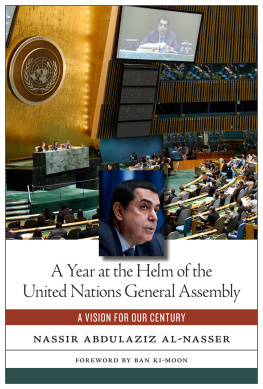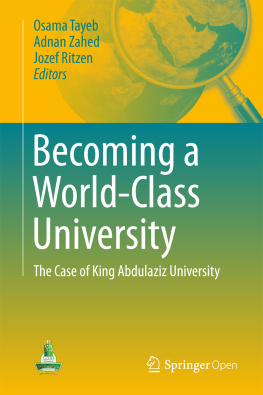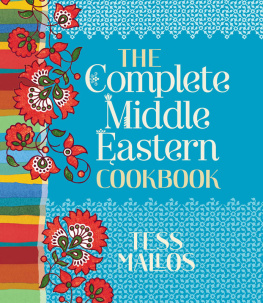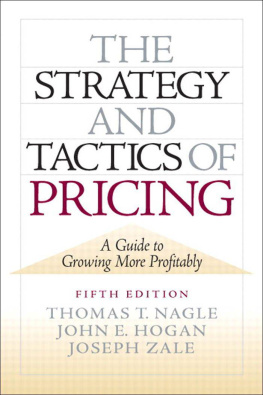Abdulaziz Aldukheil - An optimum base for pricing Middle Eastern crude oil
Here you can read online Abdulaziz Aldukheil - An optimum base for pricing Middle Eastern crude oil full text of the book (entire story) in english for free. Download pdf and epub, get meaning, cover and reviews about this ebook. year: 2020, genre: Romance novel. Description of the work, (preface) as well as reviews are available. Best literature library LitArk.com created for fans of good reading and offers a wide selection of genres:
Romance novel
Science fiction
Adventure
Detective
Science
History
Home and family
Prose
Art
Politics
Computer
Non-fiction
Religion
Business
Children
Humor
Choose a favorite category and find really read worthwhile books. Enjoy immersion in the world of imagination, feel the emotions of the characters or learn something new for yourself, make an fascinating discovery.

- Book:An optimum base for pricing Middle Eastern crude oil
- Author:
- Genre:
- Year:2020
- Rating:5 / 5
- Favourites:Add to favourites
- Your mark:
- 100
- 1
- 2
- 3
- 4
- 5
An optimum base for pricing Middle Eastern crude oil: summary, description and annotation
We offer to read an annotation, description, summary or preface (depends on what the author of the book "An optimum base for pricing Middle Eastern crude oil" wrote himself). If you haven't found the necessary information about the book — write in the comments, we will try to find it.
An optimum base for pricing Middle Eastern crude oil — read online for free the complete book (whole text) full work
Below is the text of the book, divided by pages. System saving the place of the last page read, allows you to conveniently read the book "An optimum base for pricing Middle Eastern crude oil" online for free, without having to search again every time where you left off. Put a bookmark, and you can go to the page where you finished reading at any time.
Font size:
Interval:
Bookmark:
Contents
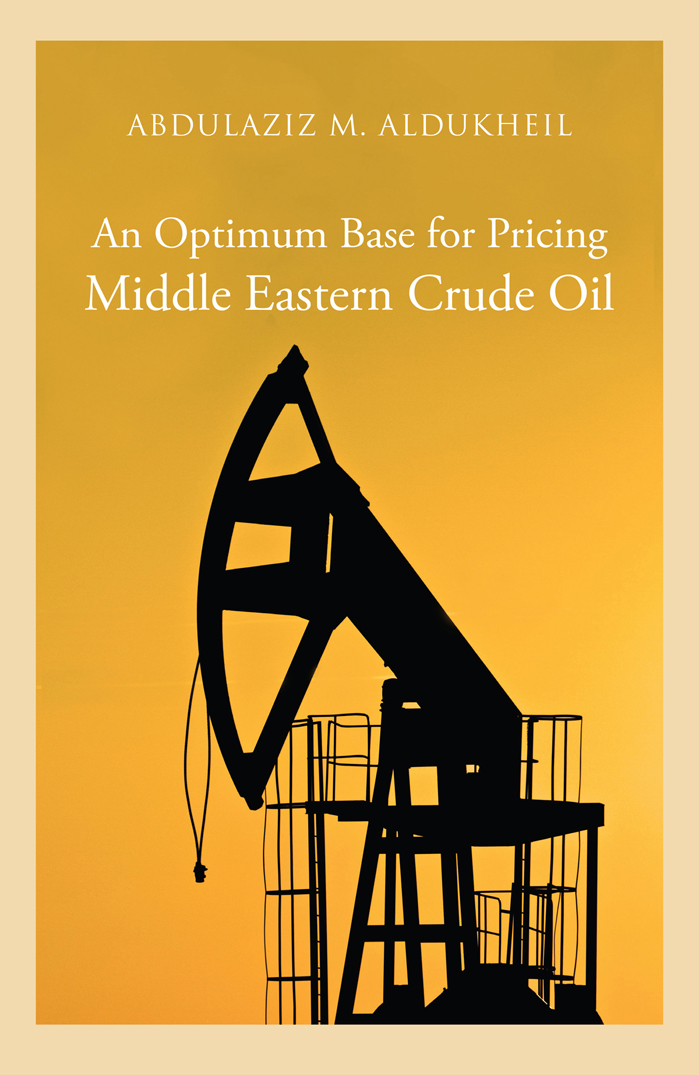
Acknowledgements
I would like to express my deep appreciation to Professor Franz Gehrels for his assistance and guidance throughout this study. I am indebted to Professors William H. Andrews, Robert W. Campbell, and Richard N. Farmer for their constructive criticisms and guidance.
I am grateful to Mrs Wanda Lee Smith for her editing of this study. Her help in this respect was most valuable. Finally, I would like to thank all those who gave me moral support when the end seemed so very far away.
An Optimum Base for Pricing
Middle Eastern Crude Oil
Abdulaziz M. Aldukheil

Published 2020 by Saqi Books
Copyright Abdulaziz M. Aldukheil 2020
Abdulaziz M. Dukheil has asserted his right under the Copyright, Designs and Patents Act, 1988, to be identified as the author of this work.
This book is based on the work for my PhD thesis, 1974, submitted to the Economics Department, Indiana University, Bloomington, Indiana, USA
This book is sold subject to the condition that it shall not, by way of trade or otherwise, be lent, resold, hired out, or otherwise circulated without the publishers prior consent in any form of binding or cover other than that in which it is published and without a similar condition including this condition being imposed on the subsequent purchaser.
ISBN 978 0 86356 543 4
eISBN 978 0 86356 579 3
A full CIP record for this book is available from the British Library.
Printed and bound by Clays Ltd, Elcograf S.p.A.
To the spirit of the man who gave,
for my education, all that he could.
To my father Mohamed A. Aldukheil
Contents
| AIOC | Anglo-Iranian Oil Company |
| API | American Petroleum Institute |
| APOC | Anglo-Persian Oil Company |
| Aramco | Arabian-American Oil Company |
| CFP | Compagnie franaise des ptroles |
| f.o.b. | free on board/freight on board |
| GCOS | Great Canadian Oil Sand |
| GNP | gross national product |
| IPC | Iraq Petroleum Company |
| KOC | Kuwait Oil Company |
| MEFC | Maximum Economic Finding Cost |
| MER | Maximum Efficient Rate |
| Mtoe | million tons of oil equivalent |
| MMtoe | million metric tons of oil equivalent |
| NEDC | Near East Development Corporation |
| OECD | Organisation for Economic Co-operation and Development |
| OPEC | Organization of the Petroleum Exporting Countries |
| SoCal | Standard Oil of California |
| TPC | Turkish Petroleum Company |
In this chapter, I will trace the evolution of the theory of exhaustible resources. The chapter is divided into three sections. The first outlines the early classical theories. This will include primarily David Ricardos rent theory, followed by Alfred Marshalls restatement of the theory.
The second section presents the early and basic formulation of the optimal utilization theory of exhaustible resources, primarily the contribution of Lewis C. Gray (1914) and Harold Hoteling (1931). Finally, refinement and extension of the basic theory will be discussed.
The Early Classics and the Pricing Problem of Natural Resources
In the early days of economic science, rent was distinguished from other forms of income by defining it as the periodic return from the use of land. The Physiocrats regarded the fertility of nature as the one possible explanation of a surplus of production, above its necessary cost.
This correlation between rent as income and land as its source did not go unchallenged. Adam Smith disputed the contention that agriculture and mining were the sole sources of the wealth of nations. He treated rent as a differential surplus and hence price determined: High or low wages and profit are the cause of high or low prices; high or low rent is the effect of it.
Ricardo modified the economic concept of land as the source of rent payments and thus defined rent as that part of the produce of the soil which is paid to the owner for the use of the original and indestructible capacities of the soil. So, in accordance with Ricardos formula, in a strict sense, we have only to consider as rent the price of the use of the original and indestructible forces of the land. It cannot, therefore, be conceived of as recompense for any sort of productive activity, of either a creative or a maintaining character.
Thus, the imperishability of the basis of rent is an essential assumption for the existence of rent in the Ricardian model. Ricardo did not hesitate to extend his doctrine of rent to all classes of land, yet he implied that modifications must be made before it could be applied to mineral lands. His two chapters on rent in The Principles should be studied together. In
Yet in he writes:
There are mines of various qualities affording very different results, with equal quantities of labour.... The return for capital from the poorest mine paying no rent would regulate the rent of all the other productive mines. This mine is supposed to yield the usual profits of stock. All that the other mines produce more than this will necessarily be paid to the owner for rent.
The apparent inconsistency here is explained as follows. In Ricardo believed that mine royalties had a dual character that they were partly a payment for minerals removed and partly a differential return due to the superior location or the greater fertility of particular mines.
So, in the early classics, the whole theory of pricing was based on the thesis that the price of the product of natural resources is settled by the cost of capital and labour which is necessary to get the last unit of product from a given area. It has been inferred from this thesis that the price of the product depends entirely on the cost of labour and capital namely, on the marginal use of capital and labour on a given land and that, therefore, the scarcity of land provides no exception to the general rule that prices of products are determined by the cost of labour and capital. This theory culminated in Ricardos famous thesis that rent is not an element of the cost of production or the price of the product.
This would put land in a special position as a factor of production, and a basis is thus provided for a differentiation between rent and the price of the other factors of production. As a result, the whole of theoretical economics is affected, as a result perhaps most clearly seen in Marshalls work. Marshall regards as cost, in the real sense, only the effort and sacrifices that are required for production, and as monetary cost of production only the price which must be paid to elicit the requisite amount of these efforts and sacrifices. Of the factors of production, labour and capital alone represent the outcome of efforts and sacrifices. Hence, these alone can be taken into account in calculating the cost of production. The price of the use of land is excluded by the very definition of cost.
With this starting point, the theory of the pricing of the factors of production is bound to assume, on the one hand, that the supply of labour and capital really depends upon the prices that are offered for the relevant effort and sacrifice and rise with the prices. On the other hand, on the margin no price need be paid for the use of land, and, therefore, the price of the product at this margin equals the cost of labour and capital.
Next pageFont size:
Interval:
Bookmark:
Similar books «An optimum base for pricing Middle Eastern crude oil»
Look at similar books to An optimum base for pricing Middle Eastern crude oil. We have selected literature similar in name and meaning in the hope of providing readers with more options to find new, interesting, not yet read works.
Discussion, reviews of the book An optimum base for pricing Middle Eastern crude oil and just readers' own opinions. Leave your comments, write what you think about the work, its meaning or the main characters. Specify what exactly you liked and what you didn't like, and why you think so.


